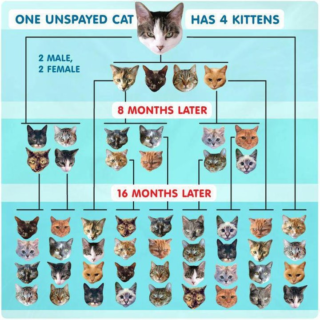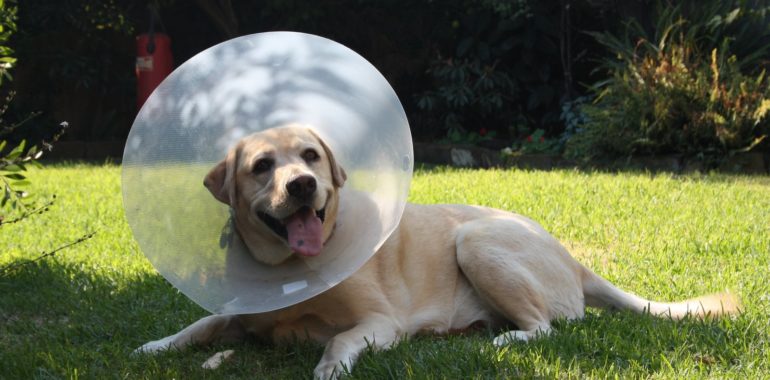To spay or neuter your pet seems like a responsible, commonplace practice whenever you adopt; but it’s truly a critical procedure that can help save animals lives and prevent more animals without homes.

According to PetSmart Charities, it is estimated that about 150,000 pets make their way to animal shelters each year, and sterilization can help to keep those numbers down by preventing unwanted litters (from your house pets and the feral population).
The good news is that a lot of shelters, including Humane Society London & Middlesex (HSLM), invest in proper sterilization procedures to take a more proactive approach to the situation around population; however, it’s still a challenge for shelters to keep up with the financial requirements of doing so. While it’s an issue for both dogs and cats, cats typically experience overpopulation at a more significant rate than dogs (with twice as many cats being brought into shelters than dogs).
“Spaying and neutering your pets reducing unwanted litters; which in turn lowers the number of homeless animals,” says Erin Duffy, RVT at HSLM. “Another major benefit is the fact that it lowers their risk for several types of cancer – ultimately increasing their lifespan.”
In fact, spaying female animals helps to reduce the potential for uterine or ovarian infections/cancers, and breast cancer in dogs and cats. Neutering males helps to prevent testicular cancer (all types of animals) or prostate issues (male dogs).
In addition to the health benefits and reduction in the overpopulation of pets, there are various behavioural benefits, including:
- Neutered males are less likely to roam away from home in search of a mate.
- Unneutered dogs and cats are more likely to mark their territory by spraying strong-smelling urine around your home.
- Spayed female dogs and cats will not go into heat cycles. Heat cycles can cause female pets to yowl, pant and urinate more often.
- Certain aggression problems are thought to be avoided through early spay and neuter.
When you choose to support HSLM, you’re not just supporting the animals habitat and ensuring there’s enough food for them; you’re also supporting their reproductive health through spay/neuter surgery for every canine and feline (when not performed prior to surrender to HSLM) prior to being adopted by their appropriate new family. This has a lasting positive effect on the animal, and the overall pet population.
Please make a donation to HSLM to cover the cost of the spay or neuter of a cat or dog in our care.
Article written by Jessica Ireland, HSLM Volunteer
Sources:
- https://www.aspca.org/pet-care/general-pet-care/spayneuter-your-pet
- PetSmart Charities. https://www.petsmartcharities.ca/
- The Canadian Federation of Humane Societies “Cats in Canada 2017” Report https://d3n8a8pro7vhmx.cloudfront.net/cfhs/pages/1782/attachments/original/1524169616/Cats_In_Canada_2017-FINAL-EN-LRs.pdf?1524169616
- BC SPCA. https://spca.bc.ca/faqs/%E2%80%8Bhow-will-spaying-or-neutering-help-my-pet/

